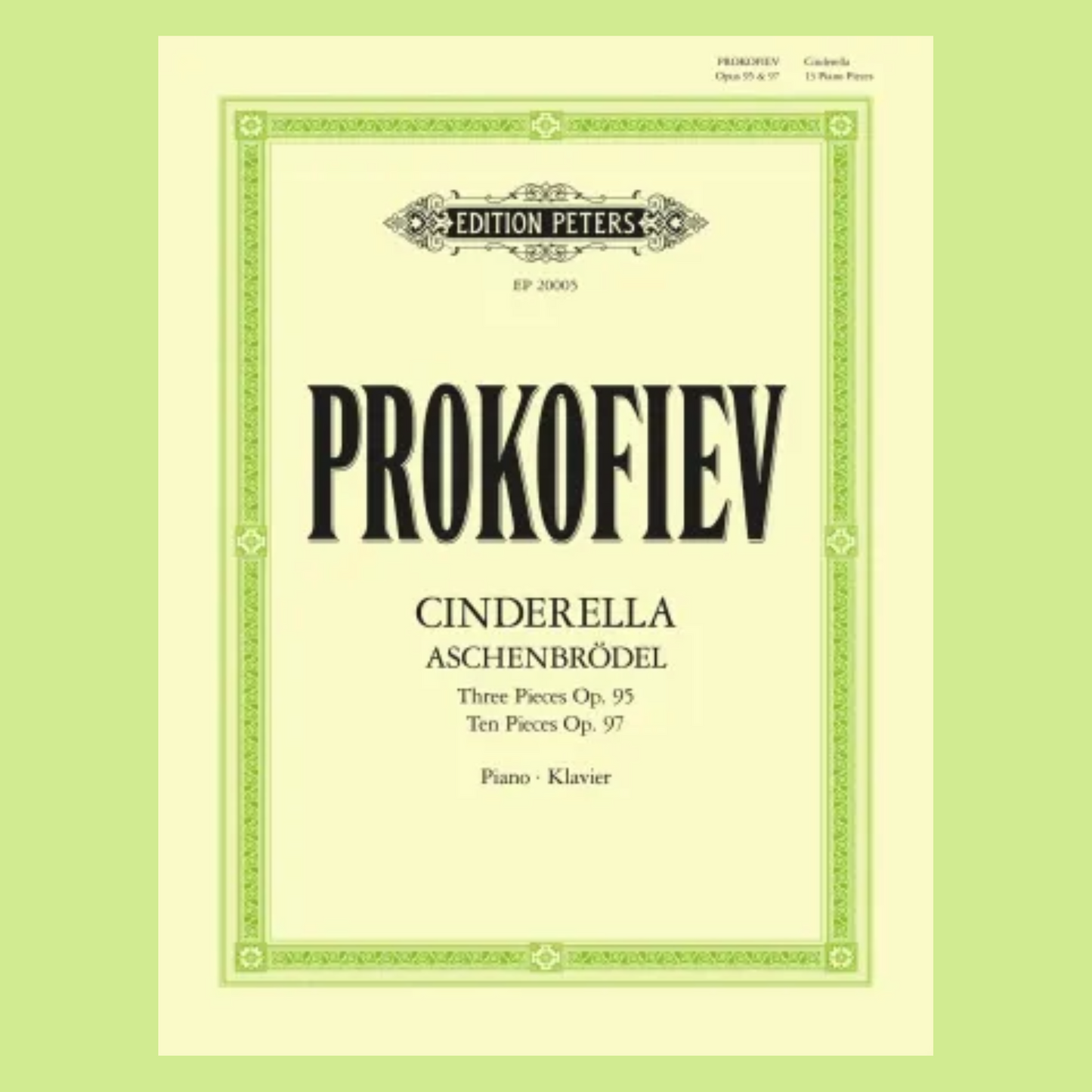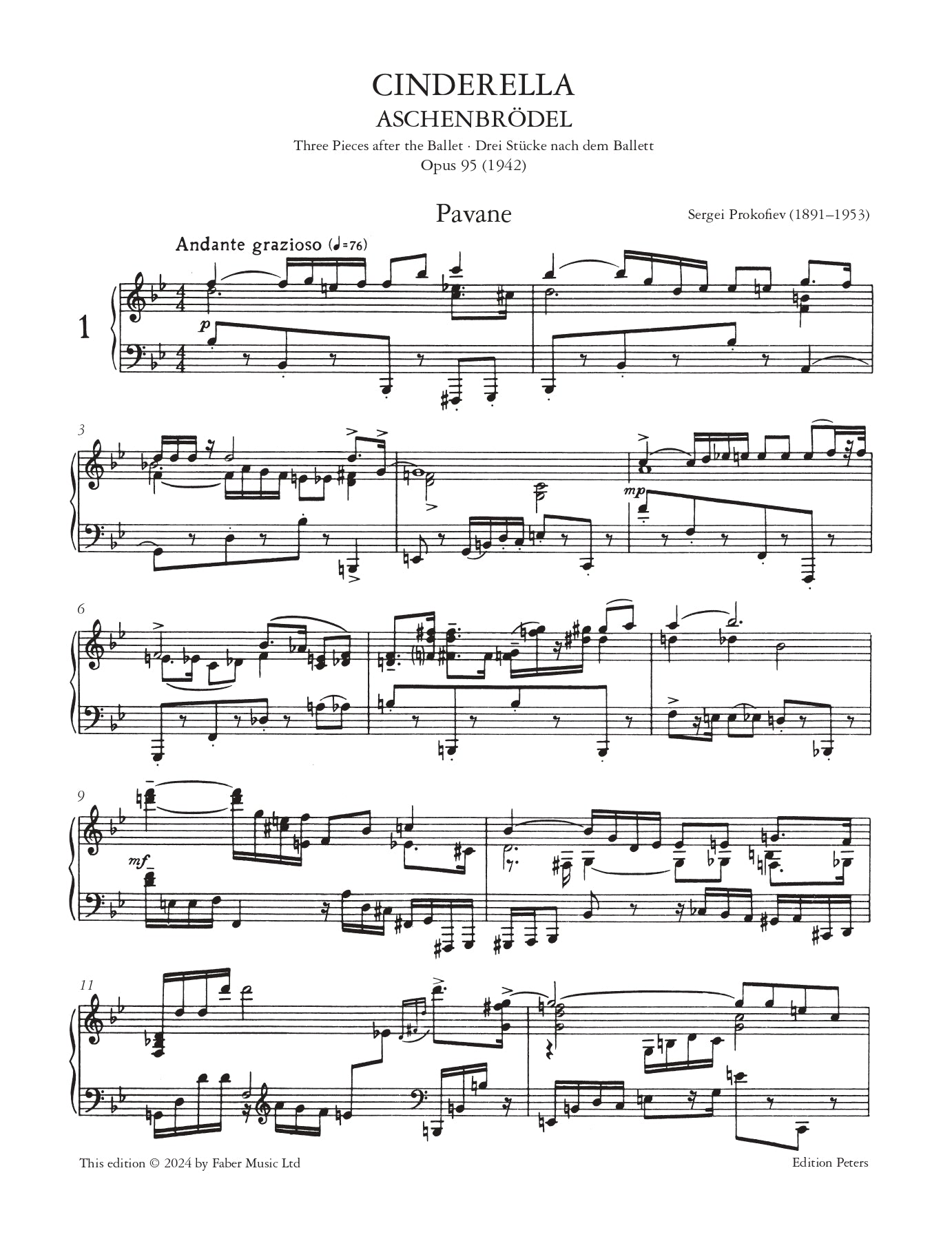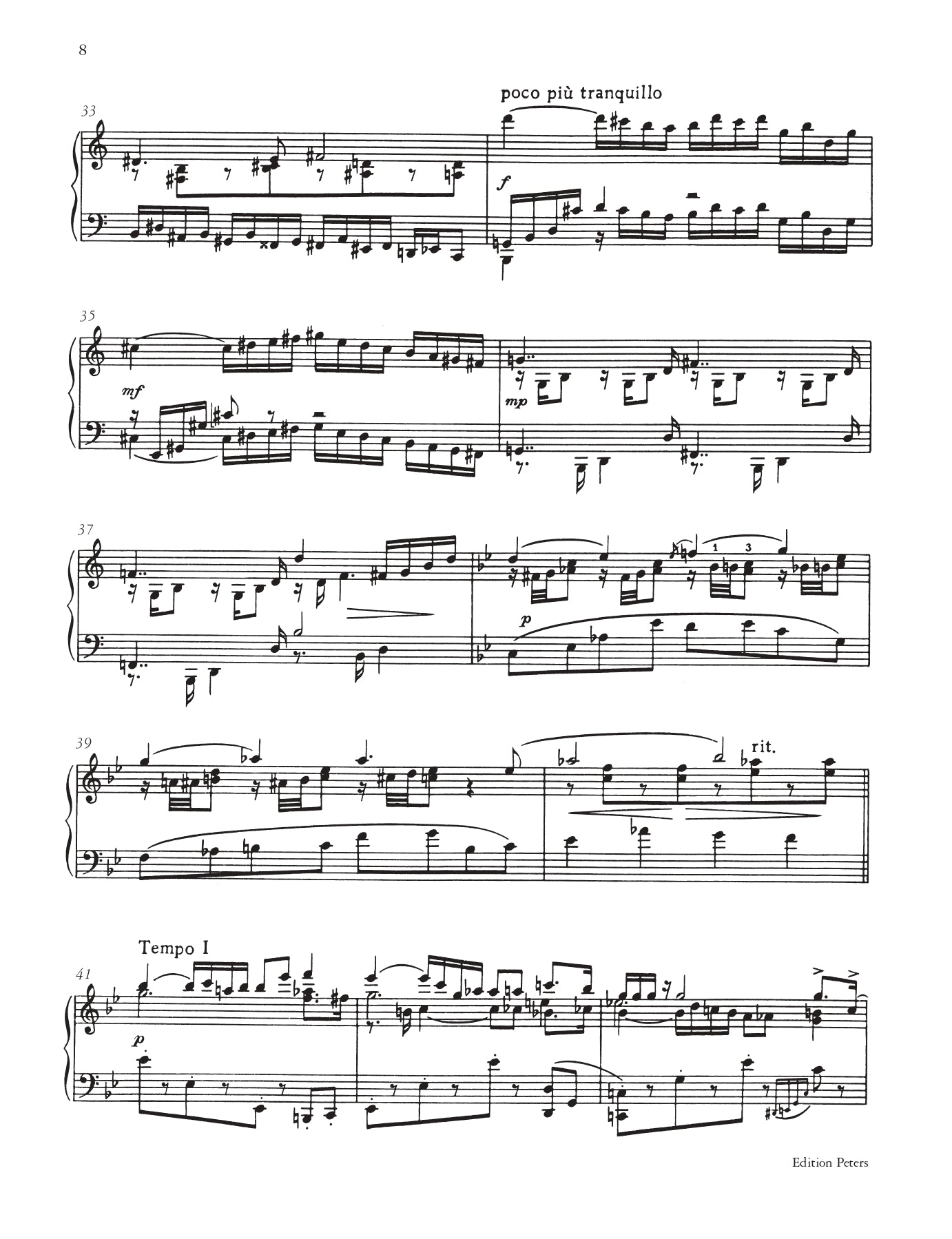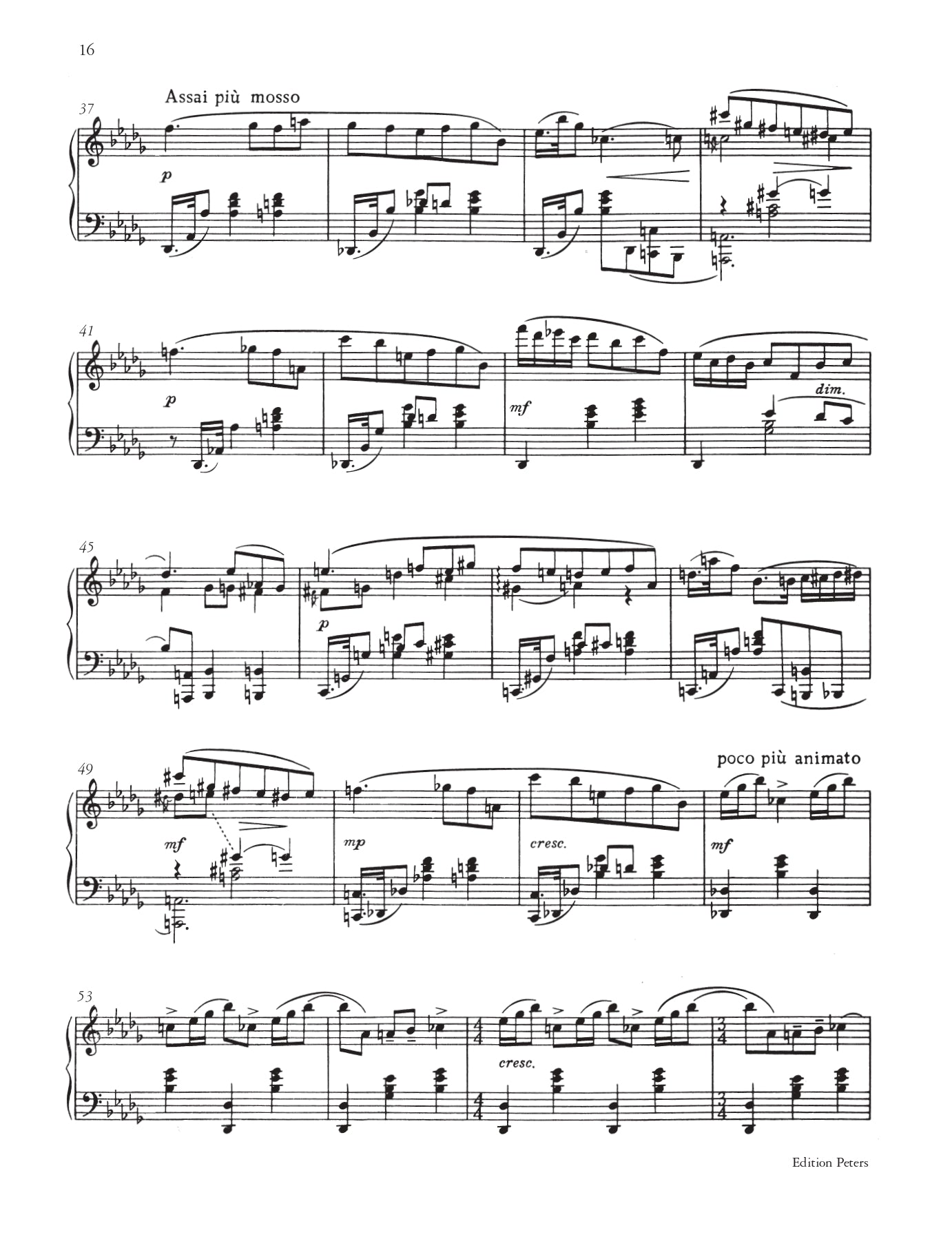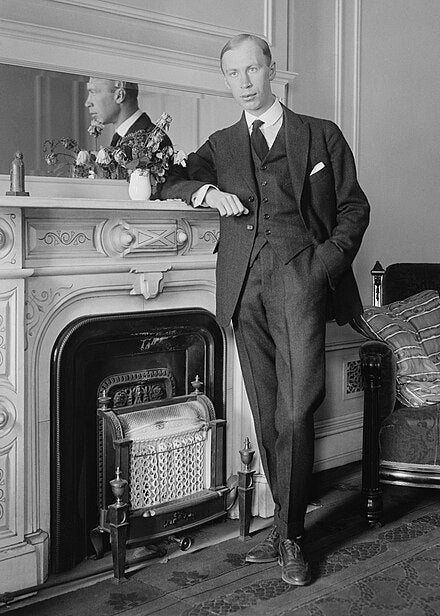Prokofiev's Cinderella: 13 Pieces for Piano Op. 95, Op. 97 Book
Prokofiev's Cinderella: 13 Pieces for Piano Op. 95, Op. 97 Book
🇦🇺 Free Australia-Wide Shipping Over $129*
✉️ Priority Un-tracked Shipping $6.99* (No Tracking Number)
📦 Australia Post with Tracking Number $10.99*
🚚 Sendle Courier (Couriers Please/Aramex) - $8.99*
✈️ Australia Post Express Tracked Shipping $18.99*
Couldn't load pickup availability
Type:
Brand:
Category:
Genre:
Edition Peters
Prokofiev's Cinderella: 13 Pieces for Piano Op. 95, Op. 97 Book 📚
13 Pieces for Young Pianists
This edition features 13 piano pieces from Prokofiev’s beloved ballet Cinderella, arranged by the composer himself. Originally published as Three Pieces Op. 95 and Ten Pieces Op. 97, these selections offer young pianists a chance to explore Prokofiev's enchanting music. The book contains 44 pages of beautifully crafted arrangements, making it an excellent addition to any pianist's repertoire.
Song Titles Include:
- Three Pieces / Drei Stücke Opus 95 (1942):
- Pavane
- Gavotte
- Slow Waltz / Langsamer Walzer
- Ten Pieces · Zehn Stücke Opus 97 (1943)
- : The Fairy of Spring / Die Frühlingsfee
- The Fairy of Summer / Die Sommerfee
- The Fairy of Autumn / Die Herbstfee
- The Fairy of Winter / Die Winterfee
- Crickets and Dragonflies / Grillen und Libellen
- Oriental Dance / Orientalischer Tanz
- Passepied
- Capriccio
- Bourrée
- Adagio
Who Was Sergei Prokofiev?
Sergei Prokofiev (often spelled "Prokofieff") was a Russian composer, pianist, and conductor, considered one of the major figures of 20th-century classical music. Born on April 23, 1891, in Sontsovka, Ukraine (then part of the Russian Empire), and passing away on March 5, 1953, in Moscow, Prokofiev's life and career spanned a period of intense change in both Russia and the world.
Prokofiev was a prodigy, composing his first piano piece at the age of five and his first opera at nine. He went on to study at the St. Petersburg Conservatory, where his talents in composition, piano, and conducting were quickly recognised. Early in his career, Prokofiev gained a reputation as an avant-garde composer, known for his daring harmonies, innovative structures, and energetic rhythms.
Some of his most famous works include:
1. **Peter and the Wolf** - A beloved children's story told through music, where each character is represented by a different instrument or musical theme.
2. **Romeo and Juliet** - A ballet based on Shakespeare's play, renowned for its powerful and evocative music.
3. **Piano Concertos** - Prokofiev composed five piano concertos, which are staples in the repertoire and known for their technical difficulty and lyrical beauty.
4. **Symphonies** - He composed seven symphonies, with the "Classical Symphony" (Symphony No. 1) being one of the most famous, reflecting a modern take on classical forms.
5. **War Sonatas** - His Piano Sonatas Nos. 6, 7, and 8, often referred to as the "War Sonatas," are among his most challenging and profound works.
Prokofiev's style is characterised by its melodic invention, rhythmic drive, and a unique blend of modernism and traditionalism. He composed in a wide variety of genres, including operas, ballets, symphonies, concertos, and chamber music. Despite the political upheavals of his time, including the Russian Revolution and World War II, Prokofiev's music remained vibrant and influential.
His later years were marked by a return to the Soviet Union, where he had a complex relationship with the government. While he achieved great success, he also faced criticism and censorship during the Stalinist regime, particularly for some of his more experimental works. Despite these challenges, Prokofiev continued to compose prolifically until his death. His music remains widely performed and loved today, admired for its innovation, expressiveness, and technical brilliance.
Shipping Information
Shipping Information
Shipping Policy
- Untracked Shipping is an untracked shipping option offered through Australia Post with a Priority stamp. No tracking number is provided with this service. Please allow 4-7 business delays for delivery of your order.
-
Standard Shipping is a fully tracked service offered through Australia Post. A tracking number will is provided once your order is shipped. Please allow 2-6 business days for delivery of your order. NT and WA customers should allow 6-8 days.
-
Sendle Courier is a courier service provided to most areas in Australia with deliveries being handled by Couriers Please and Aramex. Please allow 2-8 business days for delivery of your order.
- Express Shipping is a fully tracked Express Service offered through Australia Post/Toll Priority. A tracking number will is provided once your order is shipped. Please allow 1-3 business days for delivery of your order. NT and WA customers should allow 3-6 days.
Tracking Your Order
Pre Orders
Share
